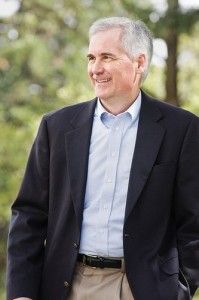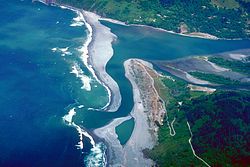McClintock: The adult in the room
Sept. 25, 2012
By Katy Grimes
I’ve written much recently about the end of the two-year legislative session in the California Legislature — none of it flattering. This Democrat-dominated Legislature operates as if it has the collective maturity level of a teenage girl.
Fortunately, following the the bill-passing frenzy, I was able to speak to an adult familiar with California politics and policies, as well as the madness that ensues at the end of a modern-day legislative session.
Rep. Tom McClintock, R-El Dorado Hills, was a 22-year California state legislator, and now is a member of Congress. I spoke recently with him about the legislative process in California and its descent into a last-minute frenzy of gut-and-amend bills, secret deals and special interest laws. But we didn’t stop there.
No more Solyndras
On one of the days we spoke, McClintock had just come from voting on the “No More Solyndras Act.” He gave a floor speech which I hoped some in the California Legislature were listening to.
Solyndra, of course, is the California solar-panel manufacturer that went bankrupt last year after receiving a $535 million loan guarantee from the Obama administration.
“The title ‘No More Solyndras’ should be ’50 more Solyndras, then we’ll stop wasting your money — Really, We Promise — Act,'” McClintock said. The bill does not immediately end the loan guarantee program, allowing the approval of applications submitted by Dec. 31, 2011. But it blocks the Department of Energy from approving more loan guarantee applications submitted in 2012 and afgter.
McClintock was not happy with the approvals of existing loan applications, but voted for the bill anyway. It passed in the House, 245-161. It’s expected to have tough going in the Democrat-controlled U.S. Senate.
McClintock argued that the bill should have killed the program outright. “This measure would still put taxpayers on the hook to loan out billions of dollars more to at least 50 additional shady alternative energy schemes that were submitted before January 1,” he said.
California green energy and water wars
The Solyndra scandal is significant and far too familiar in California, which is obsessed with the clean energy myth.
McClintock said that the human cost of over-regulation is bleeding California businesses and middle-class families.
Gov. Jerry Brown talks of job creation, but only government jobs. Brown talks about building roads, bridges and High-Speed Rail, but his policies cannot possibly create jobs. Instead, they will kill jobs.
In California, there is a perceived water war between the North and South parts of the state. But it’s a government-created problem because, as McClintock said, if California didn’t allow billions of gallons of fresh water to spill into the Pacific Ocean every year, we wouldn’t have a water shortage.
“The water war is no longer between North and South, it is between radical environmentalists and the people,” McClintock explained.
“People think that the Colorado River is the largest river, but the Sacramento River is 60 percent larger,” McClintock said. The problem is that, while officials store 70 million acre feet of water from the Colorado River, only 10 million acre feet of water is stored from the Sacramento River. The rest is lost into the Pacific Ocean.
“And now we are tearing down perfectly good hydroelectric dams at the behest of radical environmentalists,” McClintock said.
The U.S. Department of Interior has been actively planning to destroy four dams on the Klamath River in Northern California, ostensibly so that salmon can swim another 185 miles up the river. The Klamath River flows from southern Oregon through the Cascade and Coast mountain ranges to the California Pacific Coast.
These dams not only provide water and flood protection to thousands of family farmers and ranchers who live along the river, but clean energy from the hydroelectric dams supplies electricity to 70,000 residents in the area. However, the battle has pitted ranchers and farmers against environmentalists and tribes over salmon fishing.
Despite a lack of scientific evidence that dam removal will help the fish, or any legitimate study on the human impact of dam removal, the Department of Interior is moving forward to have the dams destroyed, and the Klamath basin “restored.”
McClintock said the phony science being used to support the Klamath restoration project rests entirely on the Coho Salmon population, which environmentalists claim is endangered. However, many say that the Coho Salmon isn’t even indigenous to the area.
McClintock said that, every year, 17,000 Coho Salmon return to the river. But these salmon can’t be counted, according to the DOI, because they are hatchery fish. “It’s like saying a baby born at home is more of a baby than one born in a hospital,” McClintock said, noting the idiocy of the DOI argument. “Clean, cheap, reliable hydropower is the backbone of many rural communities that not only rely on the affordable electricity, but water deliveries for irrigation and drinking.”
This brought us to the other water crisis — California’s Central Valley, once known as the salad bowl of the world.
In 2009, federal regulations were passed to protect the tiny Delta smelt fish, another fish not indigenous to the area. This led to the deliberate diversion of over 300 billion gallons of water away from Central Valley and San Joaquin Valley farmers. It cost thousands of farm workers their jobs, leaving many areas of the Central Valley with 40 percent unemployment.
McClintock said that, in many communities, hundreds of thousands of acres of fertile farmland were fallowed. During 2009 and 2010, the Obama Administration and the Democratic Congress stood by and did nothing while farmers in the Central Valley were deprived of water and left without any work.
McClintock said that House Republicans took action to correct this nightmare and hopefully end future man-made droughts in California.
In February, the House passed H.R. 1837, the Sacramento-San Joaquin Valley Water Reliability Act, with a bipartisan vote of 246-175, to restore the Central Valley water.
But the measure died in the Senate, McClintock said.
“This reminds me of something Leo Tolstoy wrote about the Czar’s despotic rule,” McClintock said at a recent hearing. “He wrote, ‘I sit on a man’s back choking him and making him carry me, and all the while I assure him and anyone who will listen that I am very sympathetic to his plight and willing to do everything I can to help — except by getting off his back.’”
How is this lunacy possible?
“A conservative is a liberal who has been mugged,” McClintock said. “Prior to the 2006 passage of AB 32, the California’s Global Warming Solutions Act, the state’s unemployment rate began a steady upward convergence with the national unemployment rates.” After passage of AB 32, California’s unemployment shot up much more dramatically than the national unemployment rate, he said. “California politicians can’t blame the national economy for that.”
Everything touched by AB 32 has been hurt. “Agriculture, cargo, passenger and transportation travel, construction, the wine industry, cement making — all are impacted negatively by AB 32,” said McClintock. “Entire sectors of the state’s economy have been hurt.”
As for the wind and solar scam, McClintock said there is nothing new. “In the 170 years since wind power was invented, technical advancements have not yet been able to figure out more a more expensive way to produce energy,” said McClintock. “Wind is more expensive than oil and gas.”
“The biggest problem with wind and solar is that we must have and maintain an equal amount of natural gas energy in order to back up the entire energy grid on a moment’s notice. We are paying not only for the most expensive forms of energy now; we are paying to back it up when it fails.”
Solar and wind also take up massive amounts of real estate, McClintock said. “Long transmission lines are needed from the power source to the energy grid. But because the solar output is so low, we can’t use the existing transmission lines — we need a whole new system to transmit solar power.”
California residents are paying three times as much for energy as is needed because of AB 32 and the Renewable Portfolio Standard that was passed in 2012. The standard requires that 33 percent of our electricity come from renewable energy sources.
The real culprit
Of California’s diminished ranking from the fifth largest economy in the world to the ninth and the state’s other problems, McClintock summed it up: “Those who blame the recession for California’s budget crisis profoundly misunderstand the nature of that crisis. Even before California’s revenue began to shrink, the state government was running a chronic $10 billion deficit and piling up unprecedented debt. The recession is merely the catalyst; the underlying cause is rampant mismanagement of the state’s resources.”
Part One of the Rep. Tom McClintock interview is here: “California burns as politicians fiddle.”
Related Articles
California Democrats spend significant campaign cash fighting each other because of Prop. 14
New figures on the November 2016 election cycle showed that Golden State Democrats continued to shell out substantial sums to compete
Californian Utopia turns into Dante’s Inferno
Mar. 10, 2010 Inferno, the first part of the famous 14th century epic poem Divina Commedia (Divine Comedy) by Dante Alighieri,
Is pendulum swinging back on police issues?
June 25, 2012 By Steven Greenhut SACRAMENTO — It’s dangerous to read too much into some small signs of sanity





